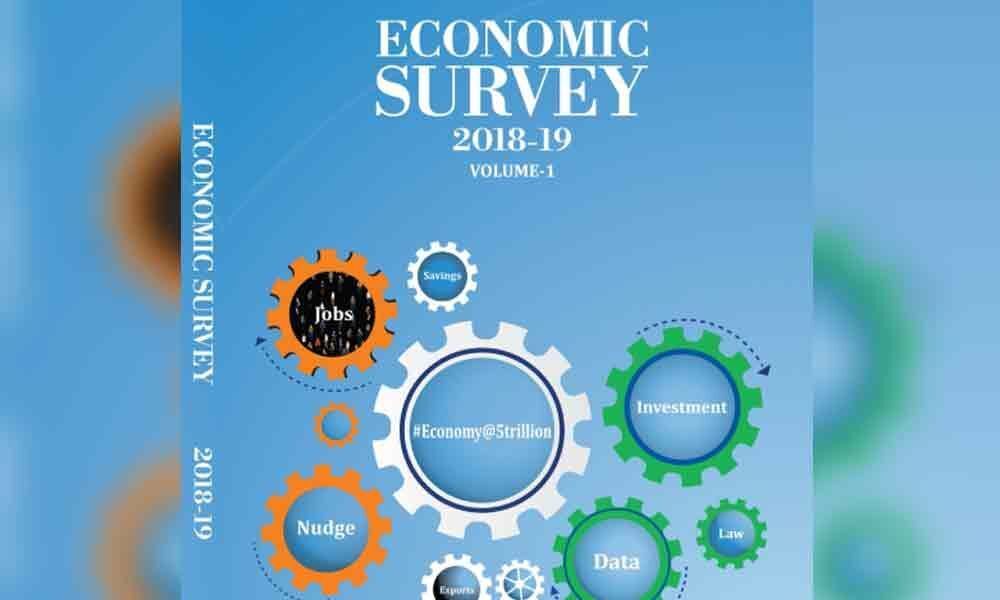Economic survey cites Hinduism, Islam, Christianity to deter tax evasion

The Economic Survey 2018-19 tabled in Parliament on Thursday has suggested ways to bring about behavioural changes to widen the tax net in India.
New Delhi: The Economic Survey 2018-19 tabled in Parliament on Thursday has suggested ways to bring about behavioural changes to widen the tax net in India.
The document listed out methods such as linking religion to tax evasion, rewarding top taxpayers by naming roads, building and trains after them, and expediting boarding privileges at airports, fast-lane privileges on roads and toll booths, special "diplomatic" type lanes at immigration, among others.
The document noted that in Hinduism, non-payment of debts is a sin and also a crime. The scriptures ordain that if a person's debts are not paid and he dies in a state of indebtedness, his soul may have to face evil consequences, according to News18 report.
The Economic Survey quoted Hinduism's doctrine of pious obligation and read, "Therefore, it is the duty of his children to save him from such evil consequences.
This duty or obligation of a child to repay the debts of the deceased parent is rested upon a special doctrine." Further reinstating the need to link religion with tax evasion, the annual document read, "Under Islam, Prophet Muhammad advocated – Allaahummainnia'oodhibika min al-ma'thamwa'lmaghram (O Allaah, I seek refuge with You from sin and heavy debt).
A person cannot enter Paradise until his debt is paid off. All of his wealth could be used to pay the debt and if it is insufficient then one or more heirs of the deceased could voluntarily pay for him."
The Economic Survey also quoted from the Bible. "The Bible says, 'Let no debt remain outstanding except the continuing debt to love one another - Romans 13:8' and 'The wicked borrows and does not repay, but the righteous shows mercy and gives -Psalm 37:21'," it noted. In order to incentivise top taxpayers, the Economic Survey suggested the following ways:
- Signboards showing "tax money at work" in constructions projects in a panchayat/ district explicitly convey to citizens that their tax money is used in valuable public goods, thereby lowering perceptions of vertical unfairness.
- Top 10 highest taxpayers within a district can be highlighted and accorded due recognition. This may take the form of expedited boarding privileges at airports, fast-lane privileges on roads and toll booths, special "diplomatic" type lanes at immigration. -
Further, the highest taxpayers over a decade could be recognised by naming important buildings, monuments, roads, trains, initiatives, schools and universities, hospitals and airports in their name.
Reduce holidays in courts
The Economic Survey suggested reducing the number of holidays of courts, and appointing more judges to enhance productivity in the judiciary system, stating that delays in contract enforcement and disposal resolution are biggest hurdle to the ease of doing business in India.
3.5 crore cases are pending in the judicial system, much of which are concentrated in the district and subordinate courts. "In spite of a number of actions to expedite and improve the contract enforcement regime, economic activity is being affected by the long shadow of delays and pendency across the legal landscape.
Contract enforcement remains the single biggest constraint to improve our ease of doing business (EODB) ranking," the survey highlighted.
It said India continued to lag on the indicator for enforcing contracts, climbing only one rank from 164 to 163 in the latest EODB report, 2018.
However, the problem is not insurmountable, it said adding "a case clearance rate of 100 per cent (zero accumulation) can be achieved with the addition of merely 2,279 judges in the lower courts and 93 in High Courts even without efficiency gains".
Suggesting measures to enhance productivity in the judiciary, the survey listed increasing number of working days of courts, establishment of Indian Courts and Tribunal Services (ICTS) that focuses on the administrative aspects of the legal system and technology deployment.
For instance, the survey said,"the Supreme Court's official calendar for 2019 suggests that it would close for 49 days for summer vacations, 14 days for winter break, and a further 18 days for Holi, Diwali and Dussehra".
After accounting for weekends and public holidays, it leaves 190 working days for the Supreme Court. In contrast, the average is 232 working days for High Courts and 244 days for Subordinate courts, it pointed out.
There is a great deal of variation between states, and many courts make up for vacations by working on Saturdays, the survey said, adding "central government offices will be open for 244 working days in 2019 (all above excluding personal leaves)".















